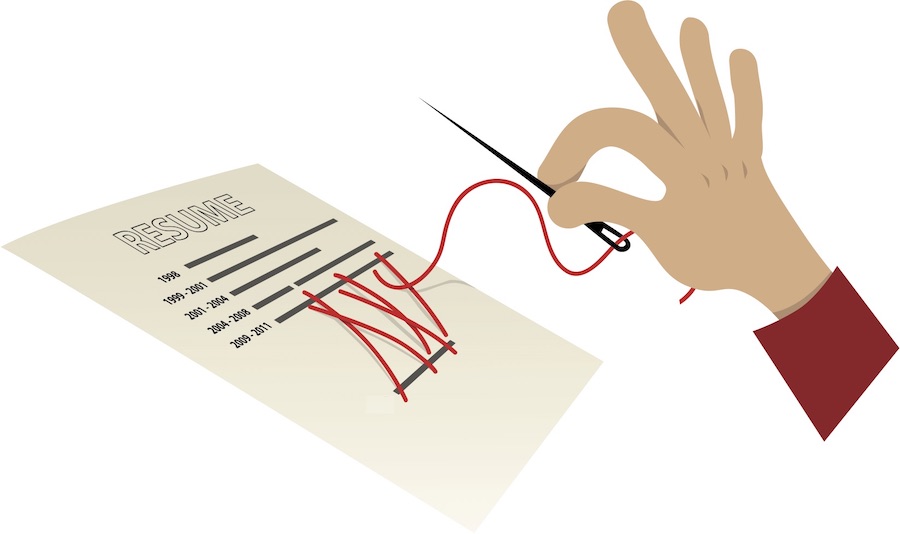Explaining a Résumé Gap
By Christina Withey
April 2021
It is not uncommon to have an employment gap in your background from a time that you were unemployed. This gap may be wide enough to be very noticeable on your résumé.
Perhaps you took family leave to welcome a new child into your life, or maybe you needed to care for an ill loved one. There could have been an economic crisis that hit the job market hard and made your search much longer than you would have liked. You could have taken time off to complete a degree, or maybe you tried to start a business that didn’t end up working out for you.
If you approach your résumé gap in an appropriate, honest and ethical way, it will become part of your story, and not just another red flag to potential employers.
Don’t lie on your résumé.
Résumé gaps cause most hiring managers and recruiters at least a slim degree of worry, because the tendency is to assume the worst. What you have to do is guide them to the truth. A 2019 survey conducted by ResumeGo uncovered that applicants who provided a reason for their work gap received close to 60% more interviews.
Don’t just try to hide the gaps by writing years of employment and leaving out the months. Instead, explain what you were doing during that time. You don’t need to explain every gap, either, if there are a few — just the more recent ones. Focus on providing context for gaps that are longer than a few months. Whatever you chose to do, please be honest. Employment background verification checks will uncover the truth, so it is best to be transparent. Also, make sure the employment history on your résumé is reflected on your LinkedIn profile!
Be prepared to explain the reason behind the gap.
Your résumé edits worked well, and you have landed an interview. Be it an in-person interview, a Zoom call, or an initial phone screen, you must be ready to verbally explain any notable gaps in your employment history. When the interviewer brings it up, address with confidence the reason for your gap in a brief, concise way, and affirm that whatever the situation was is behind you now. Then, bring the conversation back around to your experience, skills and the position at hand.
This provides reassurance and will position you as a professional, stable and dedicated potential employee who won’t jump ship immediately. And remember: Never disparage former employers during a job interview.
Highlight how else you filled the time.
Maybe the gap on your résumé was due to a sudden layoff or difficulty securing new employment. Instead of just saying that you were seeking work, you should also make note of any other relevant ways that you filled your time. Employers want to be sure that your skills have remained strong and current.
Share any volunteering that you did, classes you completed, or even consulting or freelance work that you took on while also seeking full-time employment. Any of these activities reflect as a value add, and guess what? It also fills the gap!
Be cautious about how you use your cover letter.
While your cover letter might seem like a great place to explain a résumé gap, think it through. A cover letter is an excellent place to provide some supplemental information about your qualifications while also highlighting your interest in an organization.
Going into a long explanation about a break in your employment history on a cover letter might read as defensive, so instead, you might want to present it more conversationally: “Following my tenure with xyz company, I spent six months with my family, caring for our new baby. I was excited to get back to work, and I took on a role with abc company, where I...” This is honest and straight to the point, and it brings the focus back to your work history and skills.
Approach your job search and interviews with enthusiasm and integrity, and it will be apparent to hiring teams that your skills and experience are truly what define you as a potential great fit for a job opportunity. All our professional and personal experiences combine to form our unique story, and a résumé gap doesn’t have to be a hindrance. You’ve got this.



